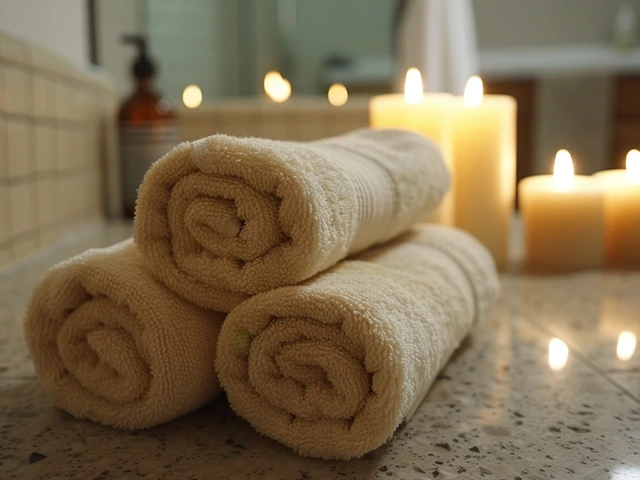
Understanding the Concept of Reflexology
As Orlando, a dedicated blogger with a keen interest in alternative therapies, I am here to enlighten you on some intriguing facts about reflexology. Now, we've all had those absolutely divine foot massages, haven't we? And we all can attest to the fact that there's something almost magical about a good foot rub that seems to have a beneficial effect on our entire body. Sound familiar? Well, that's because the principle of reflexology revolves around this very fact. You see, reflexology holds onto the concept that there are reflex points on our feet and hands that are related to every cell, organ, and body system. Now, imagine the potential of that! It implies that by systematically applying pressure to those reflex points, we could address numerous health problems. Pretty interesting, huh? It gets better. In the last decade or so, reflexology has been acknowledged as a potent ally in cancer care. "Hold on", you might say. "Are you implying that massaging my feet can help combat cancer?" In a way, yes! Now let's take a detailed look into how this happens.
Reflexology and Cancer: A Therapeutic Relationship
When we chat about 'Reflexology as an Aid in Cancer Care,' the first thing running through your mind might be, "Orlando, are you suggesting this therapy can cure cancer?" No, I'm not suggesting that reflexology can replace your cancer treatments. However, reflexology can make the journey through cancer treatments a little less rocky. Let's face it: with cancer comes a multitude of side-effects, mostly from the intense treatment regimens. Wouldn't it be awesome if there was something that could just make that a tiny bit easier to handle? That's where reflexology steps in.
Reflexologists work on the principle that by applying pressure to specific points on the feet, they can assist with pain management, reduce the impact of treatment side-effects, and improve overall wellbeing. "But how?" you may wonder. Well, proponents of reflexology believe that this therapy can help stimulate lymphatic drainage, increase blood circulation (which aids in the effective delivery of nutrients and oxygen), and release tension. This, in turn, may help alleviate chemotherapy-induced nausea, fatigue, constipation, and anxiety. Sounds good, doesn't it?
The Science Behind Reflexology in Cancer Care
You might still be skeptical, wondering, "How does rubbing my feet help with all these issues?" Well, as a happy-go-lucky kind of guy who loves a good mystery, I once too scratched my head over how manipulating points on my feet could potentially help me maintain my overall health and wellbeing. Trust me, the science behind it is even more fascinating! From a physiological perspective, pressure applied to these points releases chemicals such as endorphins, our body's natural painkillers. This can contribute to pain relief and a sense of wellbeing or ‘euphoria’. Interesting, right? Furthermore, in showing how reflexology might actually contribute to the wellbeing of cancer patients specifically, a number of clinical studies have been conducted indicating potential benefits such as reductions in pain, nausea, and anxiety.
Remember, though – as with everything, it’s all about balance. While reflexology can be a powerful ally, it should always be used as a complementary therapy, that is, alongside conventional cancer treatments not in place of them. In fact, I'd suggest discussing with your health care provider before beginning to explore any alternative therapies.
Finding a Qualified Reflexologist
By now, you could be inspired and excited about reflexology as a therapeutic intervention (so excited that you're considering grabbing your own feet and giving it a try yourself!). However, it is necessary to remember that reflexology is a specialized therapy. It's not just about applying random pressure to the soles of your feet. Professional reflexologists are trained to understand the complex network of points on the feet, and how they relate to different parts of our body. They are also proficient in understanding contra-indications, as certain foot conditions need to be approached with caution, particularly in cancer patients. If you're interested in exploring reflexology, make sure you do so under the guidance of a qualified reflexologist. I cannot stress this enough. Do your research, ask for recommendations, read reviews, and be always sure to find someone who knows what they are doing.
Reflexology as a Part of Daily Life
Finally, let's talk about how we can actually incorporate reflexology into our daily lives. Life is busy, no doubt. With so many things on our plate, it is quite a struggle to slot in time for healthy practices. However, when you think about the staggering list of potential benefits, it can definitely be worth it. You could put it in your calendar as a once-a-week event, or as a relaxation tool after a stressful day. Heck, why not try to persuade your partner into giving you a foot massage that's a little more technical?
On a more serious note, for those of you battling cancer or supporting a loved one who is, reflexology can be a ray of light in a dark tunnel. But remember, reflexology isn't just for those fighting the big fight. It can be for anyone looking to better their quality of life. Just as cooking has evolved from just being a necessity to an art, consider reflexology as an art form for wellbeing. And there you have it, folks. The power of touching your feet – who knew?




